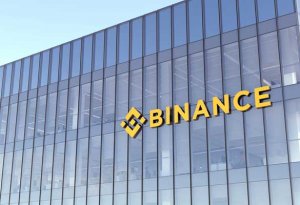Nigeria’s FX meltdown could be to the advantage of retail brokers
A central bank rate that differs from the street rates, Standard Chartered Nigeria having to refund a $48.6 million FX deal that went awry, closure of FX bureaux and sanctions on merchant services providers and lack of dollars due to government reforms in a nation in which the populace has little confidence in domestic firms and wants to trade with Western firms is a recipe for opportunity

What a mess.
Nigeria’s FX bureaux, which set their own rates and have been the subject of a government clampdown which has forced many of them out of business, are completely at odds with the Central Bank of Nigeria.
Nigeria has suffered dollar shortages recently, largely due to the government’s sanctions that have been applied to many of the several thousand FX bureaux operating in Nigeria, whose market rate for the US dollar against the Nigerian naira differs substantially from that of the central bank.
As far as doing business in the largely untapped continent of Africa is concerned, many retail FX brokers from across the West have concentrated some effort on Nigeria as a region of interest over recent years, considering that there is a large network of willing introducing brokers in the country, as well as a population that is by and large very much open to alternative investment as the domestic economy continues to provide them with a lack of confidence.
Many FX brokers in Nigeria have attempted to host seminars and training courses, both very popular among Nigerian retail investors, with introducing broker networks often organizing such events themselves in order to bring together a number of traders under one roof and provide information to a number of customers at once, which is often an effective model.
Some barriers have appeared since the halcyon days of the latter part of last decade, one notable event being the demise of Liberty Reserve and the arrest of its owner as the company was shut down by United States federal prosecutors under the Patriot Act in May 2013 after an investigation by authorities across 17 countries.
The United States charged founder Arthur Budovsky and six others with money laundering and operating an unlicensed financial transaction company. Liberty Reserve is alleged to have been used to launder more than $6 billion in criminal proceeds during its history.
Liberty Reserve was a lifeline for brokers doing business in Nigeria, as it provided a payment gateway for deposits and withdrawals from trading accounts in an environment in which traditional merchant services firms such as Visa and Mastercard were not allowing transactions to and from Nigeria.
Since this time, many firms have discontinued any interest in conducting retail FX business in Nigeria, however these days, should a viable payment method come about, a new opportunity has surfaced.
The government of Nigeria is now beginning to consider amendments to its foreign exchange laws to curb illegal fund transfers and insider dealing and stop individuals holding hard currency outside the banking system, a draft bill seen by Reuters on Monday showed.
Africa’s largest economy is facing chronic dollar shortages caused by a slump in sales of and prices for crude oil, its mainstay, which has slashed government revenues, weakened the naira currency, stoked inflation and pushed it into a recession.
The draft bill prepared by the Nigerian Law Reform Commission (NLRC), which advises the government, said the new proposals were aimed at promoting the orderly development and maintenance of the currency market in Nigeria.
It provisions include making it an offence to hold hard currency in cash outside the banking system.
“The possession of foreign currency by any person without depositing same in a domiciliary account within 30 days of its acquisition constitutes an offence liable on conviction to two years imprisonment or to a fine of 20 percent of the amount of the foreign currency involved,” the draft bill states.
This wrangling adds to an already tremendous mess. If the locations in which the global electronic trading business is populous are akin to a neatly mowed lawn, Nigeria’s domestic FX policy and the companies and banks involved in it resemble an overgrown wilderness full of brambles.
To add to the do-as-I-please nature of the FX bureaux and the differential between bank rates and street rates, institutional conduct in Nigeria is not really a shining example, either.
Yesterday it was decided that Standard Chartered Bank Nigeria PLC has to refund approximately 1.7 billion naira (approximately $54 million) to the Central Bank of Nigeria (CBN) for alleged “irresponsible market behaviour” involving a $48.6 million foreign exchange deal.
The bank is to make the refund, being excess profit made from the sale of $48.6 million to a foreign customer above the inter-bank market exchange rate agreed by all operators and approved by the CBN, representing another aspect of confidence-denting conduct.
The deal, which came in three tranches of $13.2 million, $10.4 million and $25 million each, was exchanged by Standard Chartered Bank at about N380 to the dollar, instead of a maximum of N345 to the dollar agreed by all banks and approved by the CBN.
Following the introduction of the flexible exchange rate policy by the Central Bank, replacing the previous N197-N199 per dollar exchange rate, the banks were said to have agreed on a fresh exchange rate in an attempt to strengthen the Naira, which was depreciating at an alarming rate.
To bridge the widening gap between the inter-bank and parallel market exchange rates by the bureau de change operators, the banks resolved to set an exchange rate band, initially, between N305 and N315 to the dollar, within which they would compete and trade.
It is no wonder that, considering the nature of the local market, customers wish to trade with overseas firms, and having conducted extensive research, it is clear that Nigeria has a large number of very willing potential customers for FX brokerages.
If the payment conundrum could be resolved, an opportunity is presented here.
In October, FinanceFeeds reported that a new method of payment has now emerged, in the form of a new arrangement between the Central Bank of Nigeria and British deliverable FX company Travelex which has taken the place of the 3,000 Bureaux De Change operators in Nigeria, and can also facilitate global transactions of money to and from Nigeria.
One of the main aspects that will perhaps be a catalyst in opening up the transfer of funds capabilities in Nigeria is that as a result of this partnership, Travelex began disbursing $15,000 to each of the 3,000 registered Bureaux De Change (BDC) operators across Nigeria on October 7.
Aminu Gwadabe, President of the Association of Bureau De Change Operators of Nigeria (ABCON), who disclosed this in early October this year, stated that with each of the 3,000 BDCs getting $15,000 each, a total of $45 million will flow into the system.
He lauded the Central Bank of Nigeria for authorising Travelex to take responsibility of disbursing huge dollar inflows from the diaspora estimated at $21 billion annually to Bureaux de change. This is now a large network, operated by a reputable firm, therefore FX brokers simply need to be able to accept payments via Travelex to take deposits from Nigeria.
Speaking recently to Andrew Saks-McLeod, Jean-Raphael Nahas of Blackwell Global, an expert in conducting business in Nigeria, explained “Since we first tried to tap into the Nigerian market in 2013, we experienced an immense demand for our services in the country as traders showed great interest in trading with a transparent 100% STP broker. As the first STP broker in Nigeria, we gained a competitive edge in the market by offering traders the opportunity to explore a different model that they haven’t traded on before.”
“Prior to opening our office in Lagos, we held a seminar for over 300 people which brought us significantly positive response from the public. Since then, our account numbers have been growing rapidly; not only retail traders want to trade with Blackwell Global, but there is also a great demand for our partnership programmes, particularly the Introducing Broker programme which attracted many Nigerians with its rewarding compensation scheme. Due to the great results and the rapid word-of-mouth growth amongst the forex public in the country, we decided to open our office in Lagos earlier this year” explained Mr. Nahas.
Mr. Nahas spoke of the importance of running workshops and seminars in Nigeria “There is definitely value in running trading workshops and seminars in Nigeria. The majority of traders in Nigeria enjoy operating in groups and having discussions amongst themselves. I believe this is part of the Nigerian culture; people enjoy discussing and doing things as a community which is a great thing. This aspect is strongly reflected in the success we’ve had with our seminars and workshops which offer professional education and training with our industry experts as well as the opportunity to interact with like-minded traders” he said.
Brokers wishing to conduct local business could also consider using a local bank such as Zenith Bank to hold client funds, and make monthly withdrawals to their main brokerage account to mitigate risk, yet facilitate ease of deposit for Nigerian clients.
Domestically, Nigeria’s FX policy is a mess, however with this presents opportunity, and indeed in this case, and untapped and worthwhile one.









